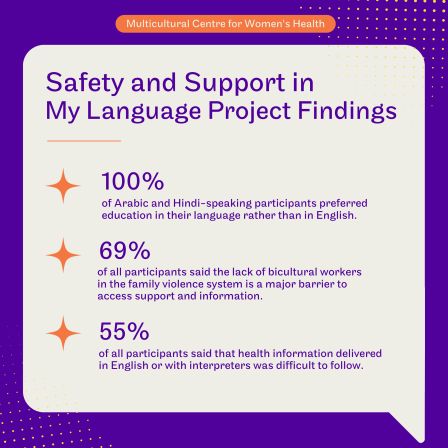
Recently, our friends at Multicultural Centre for Women's Health (MCWH) released their findings from their Safety and Support in My Language (SSMYL) project. The results are clear – bilingual educators are key to empowering migrant and refugee women against family violence.
Migrant and refugee women experience family violence at the same rate as in the general population. However, a lack of bicultural workers, who can support them in their own language, and with appropriate cultural sensitivity means they often face much larger barriers to accessing support.
As advocates and service providers, most of us understand the importance of showing up for our communities in the ways that work best for them. And the research shows, bilingual educators and services, like SSMYL, and our own Health in My Language (HIML) program, are crucial in effectively supporting women from diverse cultural backgrounds in accessible and positive ways.
At True, we know the value of bridging the gap between services and communities. In Queensland, we are proud to deliver the national Health in My Language program, which helps ensure migrant and refugee communities can access healthcare information and education in-language across the state. HIML is delivered by our bilingual expert educators, who work directly with communities to increase health literacy, including knowledge around general health issues, as well as reproductive and sexual healthcare, and healthy relationships.